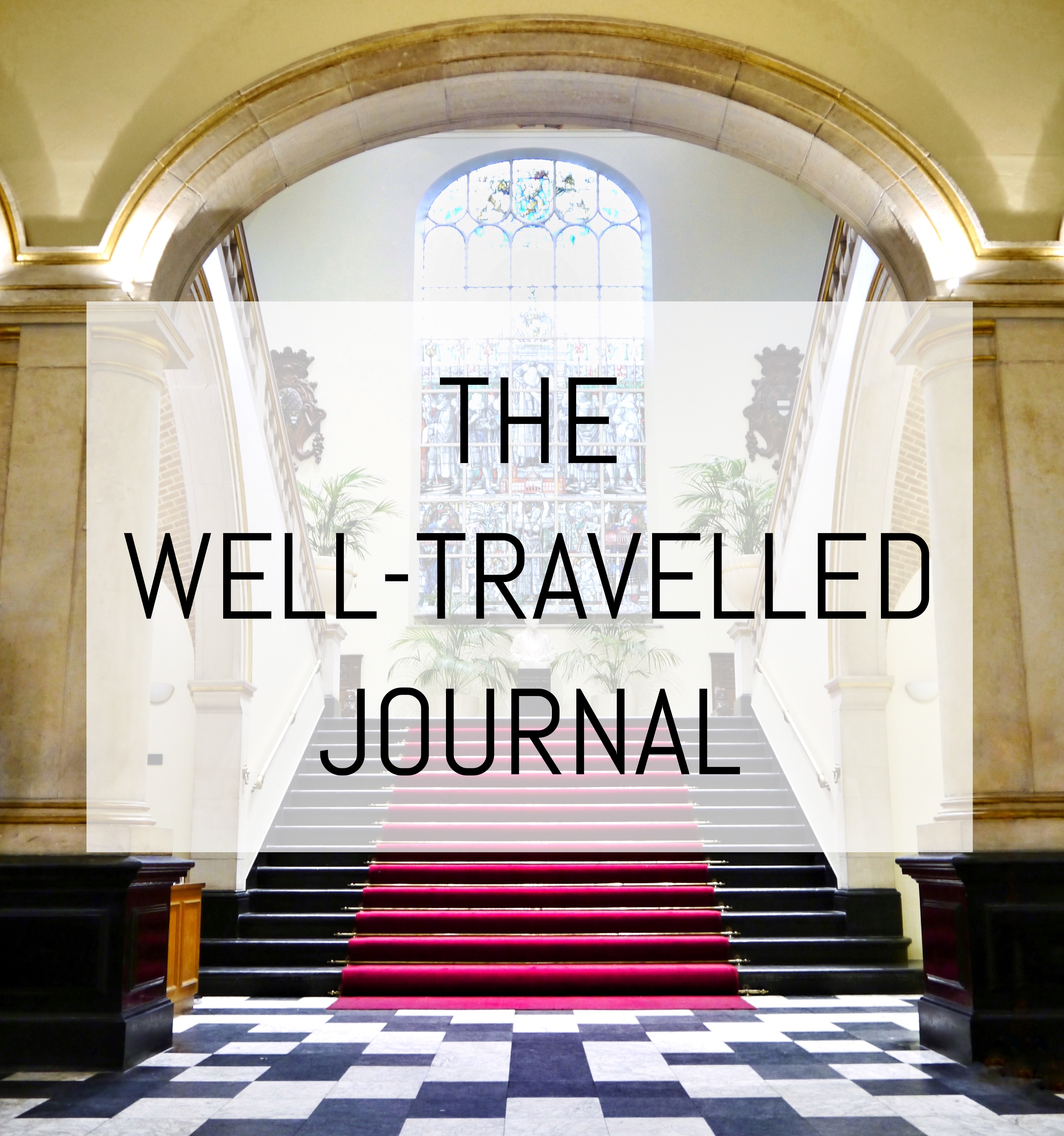What does it mean to be British? Thoughts on National Identity, Patriotism and Public Diplomacy
What does your nationality mean to you? National identity really interests me. Each country in the world is composed of an utterly unique combination of several different elements, such as culture, heritage, language, geography, politics, population and identity. No two countries are alike, so no two national identities can be the same. I, for one, am very grateful for my British nationality, as I wrote about previously in my blog post ‘6 Reasons Why My British Passport Is My Most Valuable Possession‘, and I’m also very interested in how citizens of a country reinforce their country’s identity through public diplomacy. For more on public diplomacy, take a read of this blog post: ‘Travel and Tourism as a form of Public Diplomacy‘.
I’ve just finished reading a book by Melissa Aronczyk called ‘Branding the Nation: the Global Business of National Identity’, which takes an in-depth look at how nations are now taking a corporate approach to developing national identity and improving their reputation abroad, by branding their country exactly like a marketer would brand a product. Through creating their ‘nation brand’, countries mirror product marketing and attempt to create loyalty (read ‘patriotism’) and differentiate themselves from competitors (read ‘neighbouring countries’). While the book is written in frustratingly obtuse language, the examples Melissa presents are good food for thought and it provoked me to think about my own nationality and what it actually means to be British.
National Identity
As an “insider” Brit, I can only guess at what “outsider” foreigners think of British identity. I’d guess they’d consider Britain as a developed, sophisticated, very historic society and an important world player, with images jumping to mind of the royal family, the typical London tourist sights, the former British Empire, notions of extreme politeness, cups of tea and probably rainy, grey weather too. And how do I see it? Not such a black and white picture. Firstly, my official nationality is British. However if you ask me where I’m from, I’ll reply “I’m English”. And to make matters more complex, in mentality I relate more closely to a European nationality than a British or English one. Unlike a lot of my compatriots, I strongly believe that Britain should remain in the EU, and I really relate to other European citizens, having spent numerous stints living in Spain and Italy, two years in total. That makes three separate identities that I embody, and I don’t even possess any other nationalities, as many dual-nationality Brits do. My family is 100% English, and has been for as long as the family tree can recall, so surely I should be a perfect example of a typical Briton? I certainly don’t feel it.
Nation Branding and Public Diplomacy
Britain is not as simple as it first appears. No doubt the masters of our nation brand would prefer that all Brits replied in unison that we hold the same, consistent values across the board, regardless of the actual country we come from. And yes, there are four “countries” within the UK, for those foreigners who wrongly believe they are just regions (and yes, that is confusing). But in Britain we have such a long and varied heritage depending on your family background, that we can’t hope to all embody the same ‘brand’. Melissa Aronczyk makes the point in her book that the final step of creating a nation brand is the implementation and communication of that brand, both domestically and internationally. If the citizens are to act as brand ambassadors and project that image in their every action, then they need to agree with it and consent to it. But how do you unite the views of so many diverse stakeholders with so much history, to support their individual views and backgrounds?
Melissa makes the point that “newer” countries have much more scope to create and design their own brand, less hindered by precedent and the fierce sentiments of patriotism embedded in a complex, old country like Great Britain. She uses the example of Poland, which was given a fresh opportunity to redefine itself on the international stage after the fall of the Berlin Wall in 1989 and its new-found independence from the Soviet Union. In the case of Poland, they needed to mould the foreign “perception” of the country to match the “reality” (so that it would chime with the Polish people’s views, but with significant improvements to impress foreign leaders, investors and tourists). The idea of designing a country’s brand really intrigues me… If you were to create and run your own nation, what values and attributes would you want it to represent?
Patriotism
The UK’s current brand campaign is called “Britain is GREAT” and encompasses a number of different sectors: business, tourism, culture, education, innovation, even the countryside. It’s a valiant effort and it seeks to promote our reputation worldwide. But does it represent the reality of a united citizenship? Having experienced a fair few other less desirable countries, I’m proud to be British and I’m patriotic. Britain is far from perfect, I accept, and I do feel that our national identity is somewhat tarnished in some parts of the world. For example in former colonies, where they may still harbour some resentment towards us for our colonial rule. Or in certain Mediterranean resorts, where the very worst of the British tourists go on holiday (don’t get me started on them as so-called brand ambassadors…). Despite these blemishes, I believe Britain has a strong national identity and I’m proud to belong to it. I’d like to think that every single person on this planet is patriotic to some extent, as each country has its own merits and unique characteristics that can provoke national pride.
Where is ‘home’ nowadays?
But what about those lucky dual- or even triple-nationality citizens? What is their national identity? A half-Swiss, half-Indian friend of mine identifies herself as “Swindian” for example. And there is the fantastic Pico Iyer TED talk on ‘Where is home?’ which proposes the fantastic concept that “home” can be in multiple places at once. For example, Pico Iyer’s family is from India, yet he was born and educated in Britain, but has lived in the US for 48 years and over the past 25 years he’s spent a considerable part of each year in Japan. He tells the pertinent story of his Californian home catching fire in the wildfires and him literally becoming homeless. So where is home for him? Now that so many of us live such international lives across multiple continents and with such multi-cultural backgrounds, what does the term ‘home’ really refer to? Where do these dual-nationality citizens identify as their ‘home’ and to which country do they feel most patriotic?
All of these musings leave me confused as to what it really does mean to be British. Living in London at the moment, in such a multicultural society with so many different influences and cultures, and having left my island’s shores on multiple occasions to adopt more of a European identity, I’m not sure I’m the right person to identify what it means to be British.












Interesting post! I hadn’t thought much about my “national identity” before moving to the UK from the U.S., but Americans are much more well received here than I thought they would be. Since I live in a rural area, I’m the only American a lot of people know and see regularly, and occasionally find myself “myth busting” American stereotypes (small town life is not like breaking bad, not all Americans eat mcdonalds every day etc) so hopefully that’s helping the brand!
LikeLike
The shared language definitely helps in breaking down the cultural differences, the US and the UK have a closer relationship than many other countries because of that single important factor. Misunderstandings caused by language are a huge issue in the way certain nationalities perceive others, including how much effort a nationality makes in learning the other language. The Brits especially are very bad and lazy at learning languages, which as a linguist I always feel very embarrassed about when I’m speaking to a foreigner!
LikeLike
Your flag waving imagery portrays what’s British to me! Another favourite is this the Red Arrows flying down the Mall as everybody waves their Union Jack flags there too. It’s interesting that you mentioned the “I’m English” reply. Rightly or wrongly I sometimes find it awkward saying I’m English due to some of its more negative connotations (football thug memories from the 80s, holiday goers in Benidorm from the 90s and UKIP views in the last few years :s). For that reason I’d choose to fly the Union Jack and not the St George’s Cross and I instead prefer to say I’m British, as that just feels better and includes our Scottish and Welsh neighbours too. One concern I have though is today’s political correctness where we’re not allowed to fly the Union Jack or have school nativity plays in case it “offends” non-nationals. Too much of that and original “Britishness” will slowly get phased out and we don’t want that!
LikeLike
Sorry for the horrendously late reply but yes it’s hard because there are so much negative connotations to being English, but British I feel has more colonial connotations. Very interesting…
LikeLiked by 1 person
I really enjoyed reading this, Virginia, it’s such an interesting topic. As you can imagine, it’s something I’ve thought about a lot recently, with the referendum in Scotland closely followed by a move to America! Defining specific characteristics of a national identity is difficult (something I think showed in the referendum), but regardless, I feel very strongly that I’m both British and Scottish. Certainly not American – although who knows how I might feel after living here for a prolonged period of time. Thanks for a thought-provoking post first thing in the morning 🙂
LikeLike
Hi Katie, and yes I can’t believe you’ve been there already for a year, I feel like it was just yesterday that I read your post about moving there and getting married. How do you feel now after being there a year, do you feel any more “American”?
LikeLike
I love this post! So intelligently written and well-expressed! I am currently on my year abroad in Spain living with other students from France, Italy and Germany so am VERY aware of being a brand ambassador for the UK and how they represent their own countries as well. I think it is so important to try and rid stereotypes of Britain (the drinking, the lout/Brit abroad behaviour) whilst also attempting not to make a judgement on a whole country based on that one person that you met! (Particularly if it was a negative judgement…) We, as Brits, also have some nice stereotypes attached to our identity such as being polite and tea-drinkers as you say but I will not let my “European” friends badmouth our cuisine!!
I do the same as you as referring to myself as English (particularly as there is no word for British in Italian!) but very strongly identify myself with the whole of our little island – for example if I met a Scot of a Welshman abroad I would feel equally allied as with an Englishman!
I am also very pro-EU and have spent quite a lot of time talking to my friends about this as a major issue of the upcoming general election…Are you planning to do a post on this at all?
Brilliant post and would love to hear more of your thoughts on this in the future. Vaguely related and particularly might be of interest to you having lived in Italy are two books by John Hooper “The Italians” and “The New Spaniards” which look at what it means to be Italian and Spanish respectively.
Emily
LikeLike
Hi Emily, sorry for not replying sooner but it sounds like we’d have a very interesting conversation if we ever met! Nearer the time I would be very tempted to write about the EU referendum. I’m actually starting a course today in Berlin in Cultural Relations, which is all about this kind of topic. So that should give me a fair bit to write about!
LikeLike